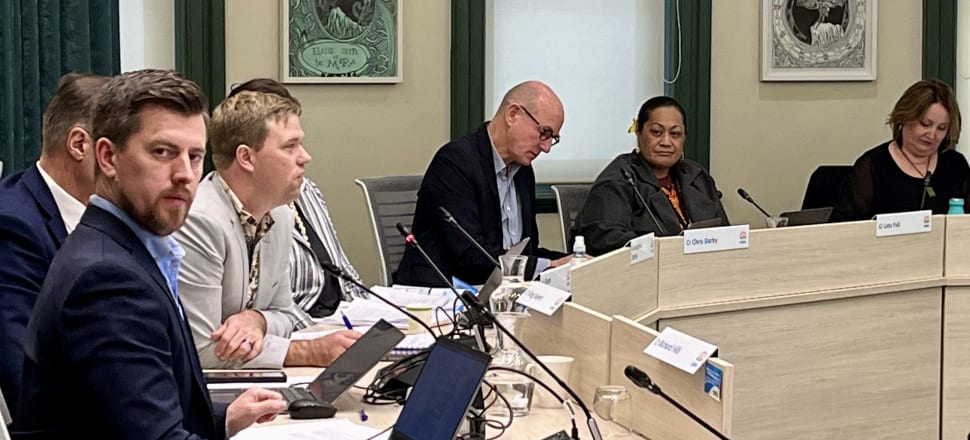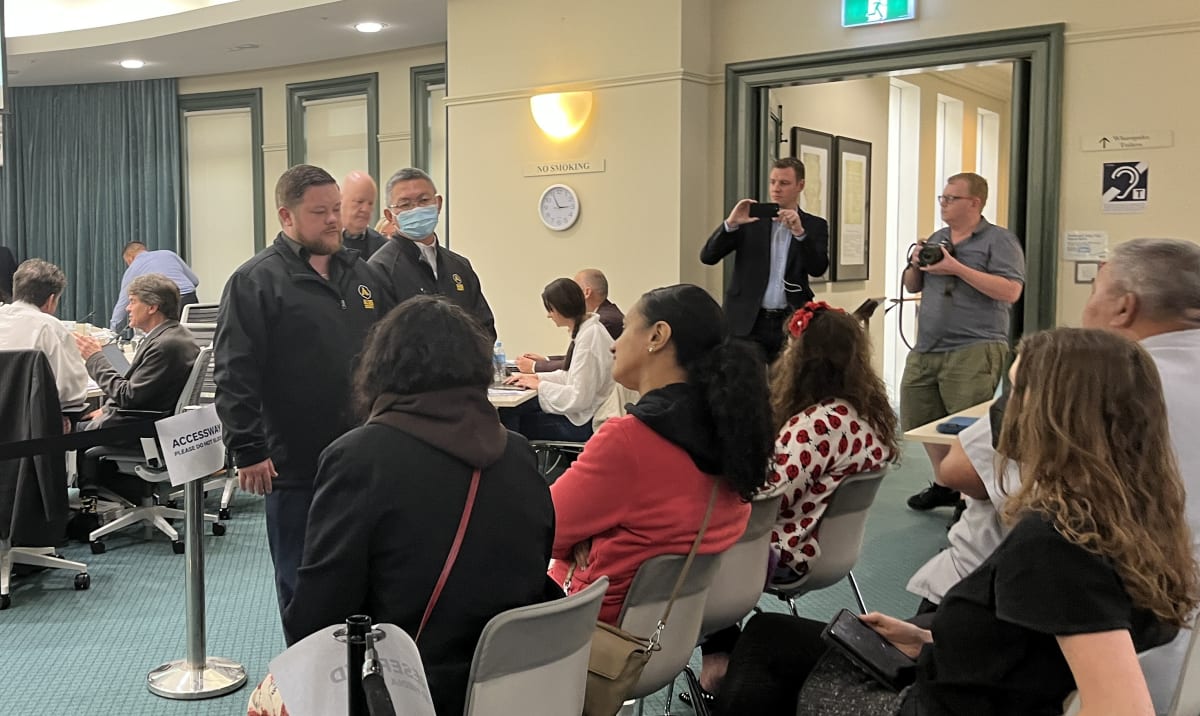
The ‘dead rat’ Auckland Council budget of 2023 showed how sometimes politics is just like pulling teeth
“It’s easy to forget just how long and tortuous this process has been,” Wayne Brown said this week opening up a two-day governing body meeting that resulted in a decision that passed 14 to six with one abstention – a difficult swallow for many.
In the nature of true political compromise, nobody got exactly what they wanted – the cost-cutting proponents like Maurice Williamson will still balk at the $105 million added to debt, while those against any form of asset sale were left upset at the 7 percent airport stake that will soon be up for market.
Passions ran high among both members of the public and councillors on Friday afternoon as it became apparent this chunk of shares would leave public hands.
Manukau ward council Alf Filipaina responded to Albert-Eden-Puketāpapa ward councillor Julie Fairey’s abstention from the vote by saying “cop-out” when it came time for him to give his own vote.
He later became visibly angry at Waitakere’s Shane Henderson after the latter voted for a partial sale in order to save West Auckland from cuts down the road.
The shares were an issue close to Filipaina’s heart. He referred to his history at Manukau City Council, which was a previous co-owner of the airport, and its place in the legacy of the city.
North Shore’s Richard Hills found himself on the other side of voting lines from his usual progressive voting bloc, with Fairey and Henderson – all of whom said they wouldn’t vote for anything that would lead to a hard decision in the next budget between austerity and rates rises.
Hills said he knew there would be minimal appetite for more rates around the table, which would lead to “deep cuts”.
“I believe that if we don't fix and fill the gap properly then we will have no choice but to put the rates up to 14.7 percent which clearly people around this table won't support, or ... big cuts.
“I'm really worried if we don’t make a structural change we are just leaving our city, our environment, our staff, to the wolves again.”
It was enough of a division on the left that both Fuli and Dalton’s amendments, which both called for no sale of shares, failed to pass through with a vote of eight councillors for and 13 councillors against.
During the debates around these initial amendments, North Shore councillor Chris Darby kept his cards close to his chest while he worked on his own amendment. Once both had failed to get through, his plan was revealed – a 6.5 percent partial sale and $86m of debt.
But after a few discussions with the mayor, it appeared a deal had been struck. Darby didn’t table his amendment, and instead the focus returned to Brown’s proposal, which now had a further compromise baked in.
The Mayor said he’d come to the compromise in the interests of getting out of what had become a multi-day meeting, and to find a solution that pleased Aucklanders.
The final version of Brown’s proposal called for a sale of a 7 percent stake in the airport, which would return proceeds of around $885m.
The compromise didn’t allay all fears, however, with Wayne Walker saying there was still a lack of contestable advice and Fairey saying she couldn’t vote for asset sales in good conscience.

Fuli compared the situation to a cryptic joke about how one eats an elephant: “Bite by bite. And in terms of the shares – that's how privatisation happens as well.”
But for others a smaller sale was a much more swallowable prospect. Waitakere’s Ken Turner had spoken the previous day about a full selldown being a $2.3bn cork for a $325m hole, but said the compromise was more fitting.
“I will support this as it gets the amount of shares we're selling closer to the size of the hole we are trying to plug.”
But as progressive councillors like Henderson and Hills went for the amendment in order to save their communities from cuts down the road, members of the public started speaking up angrily.
The meeting was briefly adjourned by the mayor after two women spoke out against the asset sales, saying it would harm vulnerable communities and accusing the councillors of being disconnected from the people.
The two women were eventually lead out by security, but other audience members continued to pepper in their feedback to the meeting, particularly to Labour-aligned voters who were going for the sale.
Several councillors were visibly emotional at what had already been a difficult compromise. Councillors who had remained staunchly against asset sales like Lotu Fuli and Alf Filipaina came to speak to the protesters in order to de-escalate the situation and allow the meeting to continue.
“I know how hurting Aucklanders are feeling at the moment, and also how hurting our staff are at the moment as well,” Darby said. “But I’m also very mindful of the very difficult and extreme positions we’ve had on the Auckland Airport – I’ve gone from sell none to sell some ... and I’m really reluctant to be in that category. Really reluctant.”
But Mike Lee took a last chance to call the asset sale a “death dive”, saying middle class councillors had overlooked the importance of the asset and allowed the council to begin the slippery slide into privatisation.
“You heard the raw anger about the people out in the street about what’s happening to their legacy,” Lee said. “As you heard from those young women today, they realise this is the first step in an axe-cut to their legacy ... The damage will have been done with the people you folk claim to represent.”
Whether they were happy with the outcome or not, there was a palpable sense of relief amongst the councillors, who have been going back and forth on the finer details of the Mayor’s proposal for months now.
Fuli said it’s been “arduous” and “gruelling” but also brought some of the governing body together that had been previously divided across political lines.
Leoni said it hadn’t just been a long trek for councillors, but residents of the region as well: “The city has been dragged through turmoil and stress for months now through this budget ... it has been really difficult, it's been a huge challenge for our communities.”







